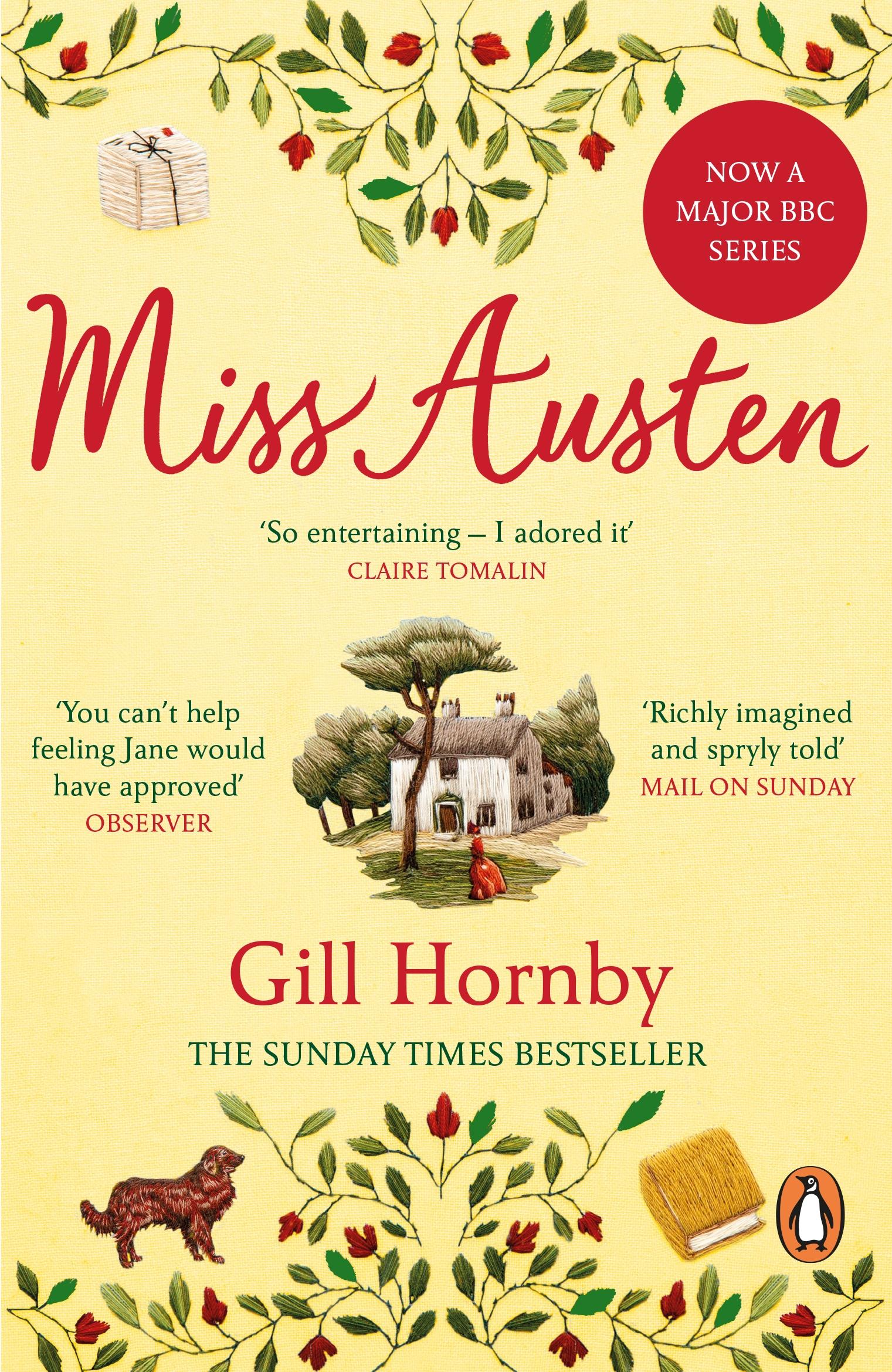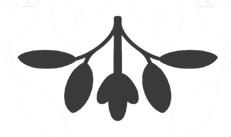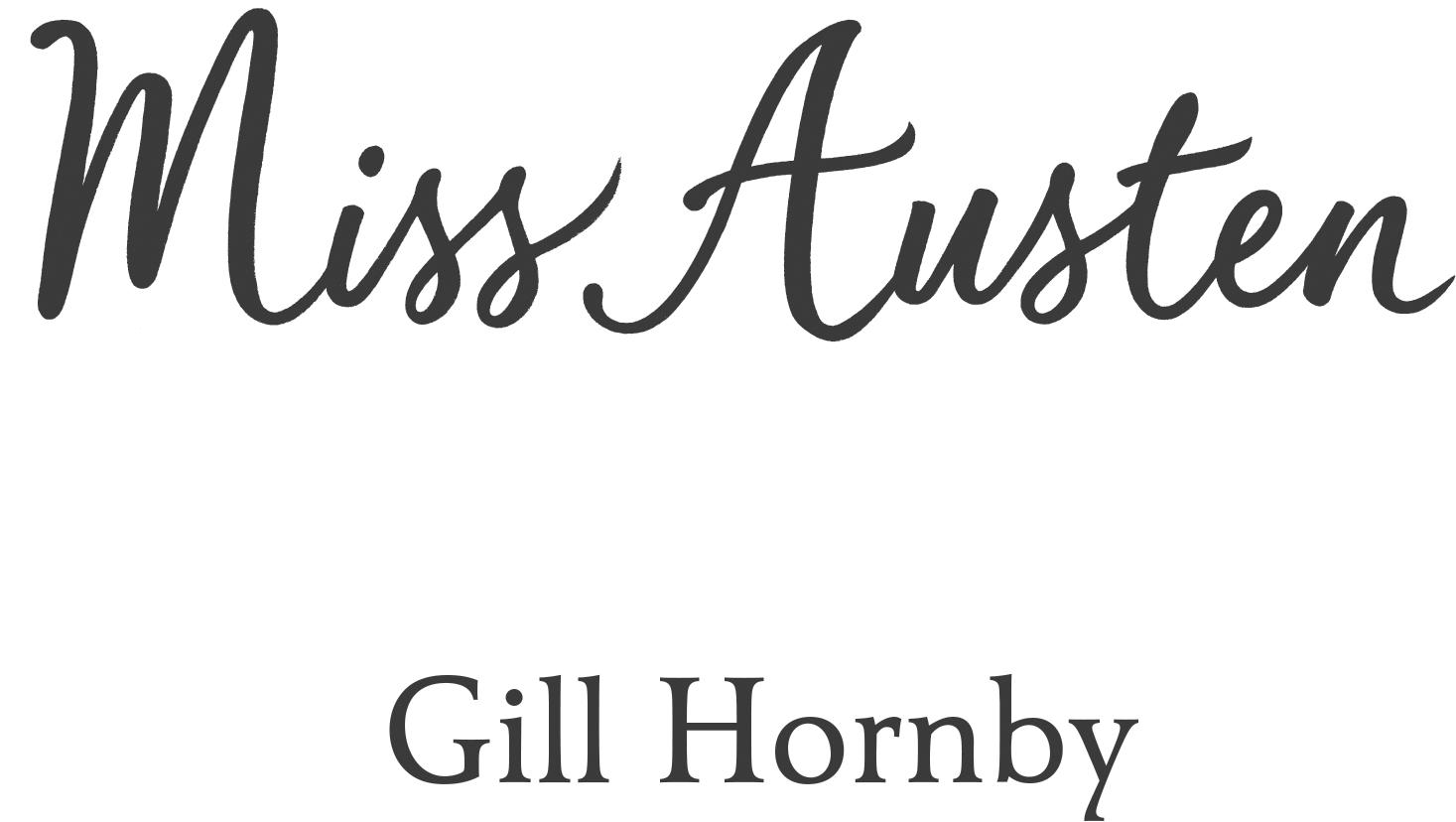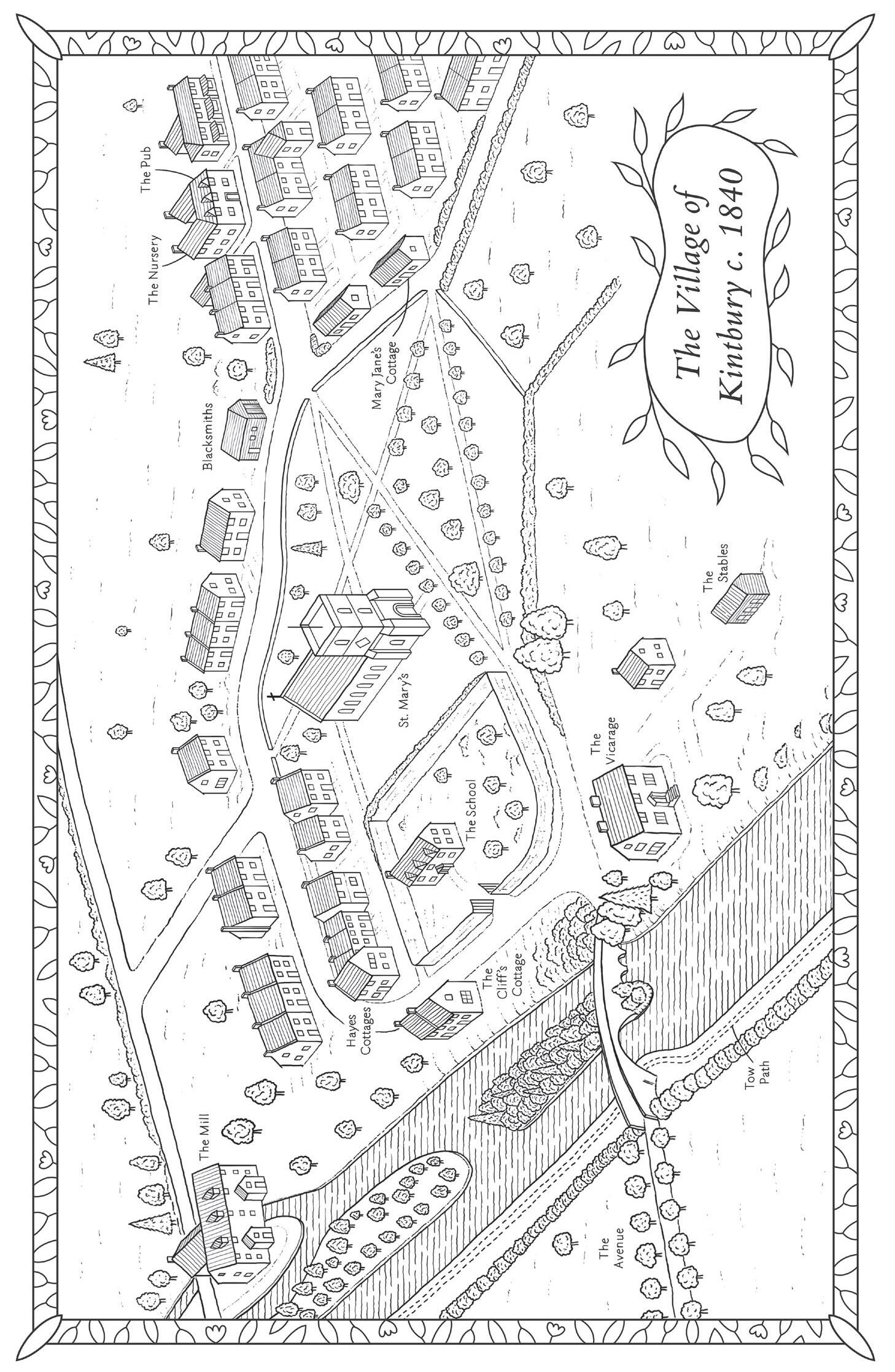


PENGUIN BOOKS

‘In this subtle and delicate novel, Hornby has created a clever, warm hearted character in Cassandra, Jane Austen’s sister.’
WOMAN & HOME

‘Hornby ingeniously imagines what Cassandra Austen’s own life might have been like, both before and after Jane’s untimely death, casting a different light on the familiar biographical picture without in any way distorting it.’
‘This is a deeply imagined and deeply moving novel.’
Karen Joy Fowler
DEIRDRE LE FAYE, editor of Jane Austen’s Letters
‘So good, so intelligent, so clever, so entertaining – I adored it.’
Claire Tomalin
‘A novel that will delight Pride and Prejudice fans.’
iNEWS
‘A remarkable novel that is wholly original, deeply moving, and emotionally complex. A gift to all Austen lovers.’
Lara Prescott
‘Austen aficionados have looked askance at Cassandra’s wilful destruction of her famous sibling’s letters, but here, in a tender and touching recreation of their relationship, the (imagined) correspondence is the key that unlocks the plot.’
‘Miss Austen is affecting, thought-provoking, and makes you think about both Jane and Cassandra Austen in a new light.’
Helena Kelly
DAILY MAIL
‘Utterly absorbing.’
Artemis Cooper
‘A wonderfully original, emotionally complex novel that delves into why Cassandra burned a treasure trove of letters written by her sister, Jane Austen – an act of destruction that has troubled academics for centuries.’
‘Celebrates unexamined lives, sisterhood and virtues such as kindness and loyalty.’
IRISH EXAMINER
Sunday Times
‘Hornby is at her best describing the complex bonds between the “excellent women” of her story.’
‘It won’t surprise me if this is one of the books of the year, it’s a delight, one of those that you don’t want to end.’
The Times
RTE
‘Miss Austen is a novel of great kindness, often unexpectedly moving, with much to say about the status of “invisible” older women.’
‘A pitch perfect novel, fond and atmospheric. It reads as if Hornby was born to write Cassandra’s story, and she brings her whole witty and sympathetic self to the task.’
Observer
KIRSTY WARK
‘Fans of Pride and Prejudice and Emma will enjoy this touching story.’
Sunday Express
‘Utterly absorbing. The lives of the Austen sisters are recreated with a brilliant sureness of touch that can only be achieved by deep study of the period.’
‘Richly imagined and spryly told.’
ARTEMIS COOPER
Mail on Sunday
‘A charming novel.’
‘This complex story reveals a clever and warm-hearted character in Cassandra, and brings us closer to one of the greatest of all English writers.’
Sunday Mirror
WOMEN’S WEEKLY






‘Through her spry, witty portrait of Jane Austen’s sister, Hornby mounts a lively defence of single women’s liberty.’
Also by Gill Hornby
WATERSTONES
‘A moving, often funny novel. Richly imagined and spryly told, Miss Austen reinstates overlooked Cassandra as the most important person in Jane’s life, reimagining some of those lost letters as an added bonus.’
The Hive
All Together Now
Miss Austen
ON SUNDAY
Godmersham Park
‘A beguilingly persuasive book that no Austen fan will want to miss.’
READERS DIGEST
‘Extraordinary and heart-wrenching, Miss Austen transported me from page one. A remarkable novel that is wholly original, deeply moving, and emotionally complex. A gift to all Austen lovers.’
LARA PRESCOTT, author of The Secrets We Kept
‘A charming novel… capturing the spirit of the brilliant sardonic Jane, and reminding the reader of how brutal life was for women in Austen’s era, it’s an ingenious and affecting embroidery on the fact of the author’s life.’
SUNDAY MIRROR
‘Jane Austen’s sister Cassandra takes centre stage in this engrossing novel that portrays what 19th Century life was like for an unmarried woman of limited means.’
GOOD HOUSEKEEPING
‘Miss Austen is affecting, thought-provoking, and makes you think about both the Jane and Cassandra Austen in a new light.’
HELENA KELLY, author of Jane Austen, The Secret Radical
‘Many of the themes familiar from Austen’s novels are deftly revisited by Hornby, and the letters that are reimagined are pitch-perfect, with deeply touching confidences shared in family correspondences. You can tell this book by its cover – it’s quite lovely.’
IRISH TIMES







PENGUIN BOOK S



UK | USA | Canada | Ireland | Australia India | New Zealand | South Africa
Penguin Books is part of the Penguin Random House group of companies whose addresses can be found at global.penguinrandomhouse.com
Penguin Random House UK, One Embassy Gardens, 8 Viaduct Gardens, London SW11 7BW
penguin.co.uk global.penguinrandomhouse.com
First published by Century 2020
First published in paperback by Arrow Books 2021 Published in Penguin Books 2024 001
Copyright © Gill Hornby, 2020 Map © Darren Bennett, 2020 Extract from The Elopement copyright © Gill Hornby, 2025
The moral right of the author has been asserted
This is a work of fiction. Names and characters are the product of the author’s imagination and any resemblance to actual persons, living or dead, is entirely coincidental.
No part of this book may be used or reproduced in any manner for the purpose of training artificial intelligence technologies or systems. In accordance with Article 4(3) of the DSM Directive 2019/790, Penguin Random House expressly reserves this work from the text and data mining exception.
Set in 11.95/15.6pt Dante MT Typeset by Jouve (UK), Milton Keynes
Printed and bound in Great Britain by Clays Ltd, Elcograf S.p.A.
The authorised representative in the EEA is Penguin Random House Ireland, Morrison Chambers, 32 Nassau Street, Dublin D02 YH68
A CIP catalogue record for this book is available from the British Library.
ISBN: 978–1–787–46283–0
Penguin Random House is committed to a sustainable future for our business, our readers and our planet. This book is made from Forest Stewardship Council® certified paper.
To Holly and Matilda
Men have had every advantage of us in telling their own story . . . the pen has been in their hands.
Jane Austen,
Persuasion

The
Austens
THE REVEREND GEORGE AUSTEN, Rector of Steventon, and his wife, MRS (CASSANDRA) AUSTEN: the couple had eight children, one of whom, named George after his father, was disabled and lived away from the family. Of the rest:
JAMES succeeded his father as Rector of Steventon. After the death of his first wife, he married MARY LLOYD. He had three children: ANNA, JAMES-EDWARD and CAROLINE.
EDWARD was adopted by wealthy relations in his youth, and lived the life of a landed gentleman. He was
married to ELIZABETH and together they had eleven children. His eldest daughter FANNY was a particular favourite of his sisters Cassandra and Jane.
HENRY was first a soldier, then a banker and finally a parson. The cleverest and most worldly of the brothers, he helped Jane find a publisher and acted as her agent.
CASSANDRA was engaged to Tom Fowle; in later life she became the executor of her sister’s literary estate.
FRANCIS, known as Frank, joined the navy, rose to the position of admiral and was eventually knighted. On the death of his first wife, who left him with eleven children, he then married MARTHA LLOYD.
JANE wrote six full-length novels, two of which were published posthumously. She died in July 1817.
CHARLES was also a sailor.
The Fowles
THE REVEREND THOMAS FOWLE, Vicar of Kintbury, and his wife MRS (JANE) FOWLE had four sons:
FULWAR CRAVEN succeeded his father as Vicar of Kintbury, and married ELIZA LLOYD. They had three sons and three daughters, MARY-JANE, ELIZABETH and ISABELLA.
TOM was betrothed to Cassandra.
WILLIAM became a military physician, and CHARLES a lawyer. Both died young.
The Lloyds
ELIZA was the wife of Fulwar Craven Fowle.
MARTHA was a close friend of Cassandra and Jane Austen. She married Frank Austen in later life.
MARY was the wife of James Austen.
‘Let us take that path.’
He closed the garden door behind her, and gestured towards the Elm Walk. She pulled her shawl close and drank a deep draught of the new, green air. The year was 1795, and the day seemed to assume itself to be the first of that spring. Birds high in the oak tree sang out their relief; a new stickiness shone from the twigs. Together, they walked up the slope at the back of the rectory, through the gap in the hedgerow and, there – out of sight of her family – he stopped and took her hand.
‘My love,’ Tom began. Cassy smiled: here it was, at last. She had been waiting so long for this moment. ‘Oh—’ He stopped, shy suddenly. ‘I think you know what it is I am about to say.’
xiii
‘Do I?’ She looked up at him, encouraging. ‘Well, I should dearly like to hear you say it, whatever it may be. Please. Do go on.’
And so he spoke. It was not a polished declaration, considering how much time there had been for the planning of it. It was a little halting, in places – he had loved her since, well, he could not quite remember . . . she was the only woman whom he could ever contemplate . . . um . . . sharing – and so on, but she was charmed all the same. It was entirely in his dear character, and both as wonderful and as ordinary as these moments should be. When it seemed that all words, even the inadequate, were beginning to fail him, she accepted to spare him the struggle. They kissed, and her whole body was consumed by a surge of – what was it exactly? – yes: satisfaction. This was her destiny. Her life was in place.
They walked for a little, her arm in his, and discussed the terms of their engagement. In fact, there was only one term that could concern them: it would be long. And those dread words ‘two hundred and fifty pounds’ and ‘per annum’ did have to be mentioned – how they wearied them both! But be mentioned they must. He asked for her patience; she promised it without thinking. Cassy was just twenty-two; they had years yet to play with. And patience was, famously, one of her many virtues. They turned back to the house to spread their glad news.
It was met with all the exuberant delight that they could have wished for, though not even a pretence at surprise. For this engagement – between Miss Cassandra Austen of Steventon, and the young Revd Tom Fowle of Kintbury – had been settled as a public fact long before it was decided by the couple in private. After all, it was the perfect match, of the sort that would bring such pleasure to so many. So it must be their future, their one possible happy ending.
The universe had agreed on that for them, many years before.

Kintbury, March 1840
‘Miss Austen.’ The voice came from behind her. ‘Forgive me.’ She turned. ‘I did not know you were there.’
Cassandra managed a smile, but stayed where she was on the vicarage doorstep. She would dearly like to be more effusive – she felt the distant, familiar stirrings of effusiveness somewhere, deep down –but was simply too tired to move. Her old bones had been shaken apart by the coach ride from her home in Chawton and the chill wind off the river was piercing her joints. She stood by her bags and watched Isabella approach.
‘I had to go up to the vestry,’ Isabella called as she came down from the churchyard. She had always cut a small, colourless figure, and was now, of course – poor dear
– in unhelpful, ill-fitting black. ‘There are still duties . . .’ Against a backdrop of green bank dotted with primrose, she moved like a shadow. ‘So many duties to perform.’ The only distinguishing feature about her person was the hound by her side. And while her voice was all apology, her step was remarkably unhurried. Even Pyramus, now advancing across the gravel, was a study in reluctance with a drag on his paws.
Cassandra suspected that she was not welcome and, if that was so, could only blame herself. A single woman should never outlive her usefulness. It was simple bad manners. She had come uninvited; Isabella was in difficulties: it was all rather awkward but quite understandable. Still, she once might have hoped for some enthusiasm from a dog.
‘My dear, it is so kind of you to let me visit.’ She embraced Isabella, who was all cool politeness, and fussed over Pyramus, though she much preferred cats.
‘But has nobody come to you? Did you not ring?’
Of course, Cassandra had rung. She had arrived with great commotion and business in a post-chaise so that nobody could miss her. The coachman had rung and then rung again. She had seen people, plenty of them: a steady traffic of labourers balanced on carts coming back from the fields and a group of boys, wet to the knees, with a newt in a bucket. She longed to speak to them – she was rather fond of newts, and even fonder of boys in that fever of innocent passion – but
they did not seem to see her. And the house had stayed silent, though that difficult maid – what was her name? Cassandra’s memory, always prodigious, was beginning to fray, if just at the edges – must know perfectly well she was there.
‘I came at a bad moment. Oh, Isabella’ – Cassandra held her arms and looked into her face – ‘how are you?’
‘It has been difficult, Cassandra.’ Isabella’s eyes reddened. ‘Really most difficult.’ She struggled, but then composed herself. ‘But how does the old place seem to you now? Have you been looking around?’
‘Exactly as it has always been. Dear, dear Kintbury . . .’
The vicarage had been a landmark – familiar, oft-times sad, always beloved – in Cassandra’s life for forty-five years. A white, three-storey building with a friendly face set east towards the ancient village; garden falling on one side down to the banks of the Kennet, rising on the other to the squat Norman church. It stood testament to everything that she valued: family and function, the simple, honest, good life. She rated this happy piece of English domestic architecture over anything grander –Godmersham, Stoneleigh, Pemberley even. That said, she dearly would like to be inside it – by the fire, in a chair, getting warm. ‘Shall we—?’
‘Of course. Where is everybody? Let me take that.’ Isabella reached for the small black valise in Cassandra’s hand.
‘Thank you. I can manage it.’ Cassandra clutched the bag to her. ‘But my trunk . . .’
‘Trunk? Ah.’ Though Isabella’s face remained pale and blank of expression, her piercing blue eyes flashed bright with intelligence. ‘I am sure it is my fault. I have had so much on my mind.’ One eyebrow arced. ‘And your letter arrived only yesterday – was that not odd?’
Not odd at all; indeed, it was entirely deliberate. Cassandra had never before been so discourteous as to arrive without proper notice but, on this occasion, had simply had no choice. So she gave a vague smile.
In the absence of any explanation, Isabella went on: ‘I did not grasp quite how long you are staying. Do you plan to be with us a while?’
Isabella’s displeasure at her arrival was now perfectly plain. Beneath that mild, quiet exterior, there was, perhaps, a stronger character than had previously been witnessed. Nevertheless, Cassandra would stay here as long as was necessary. She was determined not to leave until her work here was done. She muttered about possibly travelling further on to a nephew, affecting an uncharacteristic indecisiveness brought on by advancing age.
‘Fred will bring in your trunk. Please.’ Isabella signalled towards the door, which opened at once from the inside. ‘Ah, you are there, Dinah.’
There. Dinah. She must remember that. She might be needing Dinah.
‘Miss Austen is with us.’
Dinah squeezed out a negligible bob.
‘Shall we go in?’
Cassandra had first crossed this threshold as a young woman. She was tall then, and slim; many were kind enough to say handsome. Was time playing its tricks or had she worn her best blue? A crowd of family had assembled to greet her; the servants – excited, admiring – jostled behind. She had stood still and thrilled at it –the power of her position! The force of that moment!
Oh, she still looked in the glass, when she had to. She knew she would not be called slim now, but spare. Her spine, once a strict perpendicular, was kinked and shortening; her face so gaunt that her once proud nose – the Leigh nose, the stamp of a distant aristocracy –more like the beak of a common crow. And the people who loved her then were gone now – as she herself was gone, almost. Those receiving her today – poor Isabella, difficult Dinah, Fred who now passed through the vestibule, grunting and dragging her trunk – of course knew the facts of her history, but had no sense of the truth of it. For whoever looked at an elderly lady and saw the young heroine she once was?
They moved through to the wide, wood-panelled hall. Cassandra followed them meekly but, once there, was
suddenly seized with alarm. She made for the generous stone fireplace, clung on for support and looked with horror at the scene around her.
She could hear Dinah mutter: ‘Lord save us. She’s turned up and lost ’er senses. As if we don’t have enough on our plate.’
And Isabella whisper: ‘Perhaps it is more sorrow or sentiment that affects her. After all, this must be the last time that she will ever come here.’
Cassandra knew better than to acknowledge them. It was one of those conversations conducted as though she could not hear it, in which the young so often indulge around the old. But as if she could be overcome by sorrow or sentiment, when for decades they had been her constant companions. No. It was not the fact that this was the last visit – she gasped for air, her hands shook – it was the fear that she had left it too late. The house was already in a chaos of removals.
‘My dear, are you sure you are quite well?’ Isabella, softening, took her elbow, giving her something to lean on.
A portrait of the Fowles’ benefactor, Lord Craven, had hung above that fireplace ever since she could remember. Now it was gone from the wall.
‘That coach was too much for you.’ Isabella talked loudly as if to an imbecile, while untying the ribbon around Cassandra’s chin. ‘All that way in this cold weather.’ Her bonnet was removed. From where she
was standing, Cassandra could see into the study where the shelves had been emptied. Which books were gone? They had had the whole set of Jane’s. Who had them now?
‘And she’s come alone then, I can’t help but notice.’ Dinah was behind her, loosening off her cloak.
The furniture still in place looked abject, humiliated, like slaves in the market place.
‘Perhaps her maid is away?’
‘Which leaves who looking after ’er, may I ask?’ Dinah flung cloak and hat over her arm. ‘Me and whose army?’
A vicarage without a vicar was always a sorrowful sight. Cassandra had borne witness to it more often than most, yet it still affected her every time. The Fowles had lived in this house for three generations. It had been handed on, father to son – all good clergymen, all blessed with fine wives – but that chain was now broken. Isabella’s father was dead, and her brothers had refused it. No doubt they had their reasons and, to squander all that family heritage, Cassandra sincerely hoped they were good ones.
Church tradition allowed the relics of the family two months to vacate the house for the next incumbent. And, although it was not anywhere written, Church tradition seemed somehow always to rely on the vicarage women to effect it. Poor Isabella. The task she had before her was bleak, miserable, arduous: just two months to
clear the place that had been their home for ninety-nine years! Of course, she had to start on it at once. But still, the Reverend Fulwar Craven Fowle had been dead but a few weeks. Cassandra had come as soon as she could. She was shocked to see that the work was already this far advanced.
To think that journey – so tiring, so uncomfortable, so shamefully expensive – might not have been worth it! To think that for which she had come might already be gone!
Cassandra felt nauseous and dizzy. Kindly Isabella smoothed down her hair – she must look dishevelled –and led her through the hall.
The Kintbury drawing room was a thing of simple beauty: a perfect cube with walls of deep yellow which caught and held the setting sun. Each of its windows, on two sides, looked out over water: you could stand and watch the fishermen on the river or barges glide along the canal to east and west. Ordinarily, it was one of Cassandra’s favourite places. It satisfied her soul. But on that day, she approached it with nervous trepidation, consumed with a dread of what she might find.
She need not have worried. Even as she entered, before setting a sensible shoe on the needlepoint carpet, she felt herself safe. The atmosphere here was one of calm and repose. The air was quite undisturbed. And all the furniture was here, just as it had always been. So she had not come too late! Her knees almost buckled
with the relief. She turned back to Isabella, her voice and authority returned to her at once.
‘Now, perhaps I may repair myself before we dine?’
Cassandra had often privately observed that when the gentleman of the house died, fine dining died with him. It was a thesis that evening’s dinner was determined to prove. Their mutton was just that: mutton, with no sauce, potatoes or pudding, its only companion a cabbage that had loitered too long in the ground. She smiled as she compared it with the meals she once enjoyed there. Isabella’s father was always a man of high standards and immoderate reactions. If Dinah had dared serve him something like this, he would have made his displeasure known.
But they were two ladies, so they politely thanked their Lord, with some effort cut their mutton, and chewed with a dogged determination. The only other sound was the loud ticking of the clock. Silence at that particular dinner table was another unwelcome innovation, one that Cassandra was finding more tough than the meat.
‘I see from the labels on everything that you are already well ahead in dividing up all the effects.’ Cassandra eyed the decanter, which was empty for the first time in its history. She tilted her head and read that
Mr Charles Fowle had already claimed ownership. It could look forward to a busy future with him.
‘The will was read last week and my brothers were able to make their decisions.’ Isabella betrayed no emotion as she said this. Her face was turned down, those bright eyes studied her plate.
Cassandra, though, could not help but be more forthcoming. ‘And your brothers are to have all the goods and chattels?’ She could hear the sharpness in her own voice and was at once all regret: she was well aware of being too sharp for some tastes, and did try to blunt her own tongue. But really, this business was too vexing. The Fowles were like the Austens in so many ways: both large families, blessed with sons and daughters, and by a great good fortune which seemed only to run down the male line.
‘My father did leave some novels to my sister Elizabeth.’ Isabella gestured at the bookcase, which had one blank and dusty shelf. ‘Particular favourites, which they read together.’
Cassandra lit up.’ Ah!’ At last, they had struck upon her favourite conversation. She asked, teasingly: ‘And they were by whom, may I ask?’
‘By whom?’ Isabella seemed at once baffled by the question, as if books were books and their authors of no matter. ‘Why, Sir Walter Scott, I do believe.’
Cassandra gripped her fork and stifled all natural expression. Sir Walter Scott. Sir Walter Scott! Why must
it always be him ? How she wished that just once, she too could let fly with an immoderate reaction. Instead, she sat silently brooding – on the injustices of fame; the travails of true genius; the realisation – and this came to her quite spontaneously – that she had never particularly warmed to Isabella’s sister Elizabeth. And then her thoughts were suddenly interrupted. What was this? Isabella had at last found she had something to say.
‘It is my opinion that his books are very . . .’ There was a pause while she looked around her, searching for the bon mot. ‘. . . very . . . very . . .’ And then, as if by a miracle, it came to her: ‘. . . long .’ She drew breath to continue. Having thus broached the unlikely territory of literary discussion, she was somehow emboldened to journey yet further therein. ‘There are many, many words in them,’ she carried on, with some bitterness. ‘They seem to take up too much of everybody’s time.’
Cassandra was generally used to a higher level of discourse, but still she could only agree. In other company, she might have argued that he was a fine poet and joked that his work as a reviewer was quite unsurpassed, but could sense that this was not quite the forum. ‘And what about you, Isabella? Do you like novels? What are your particular favourites?’
‘Novels? Me?’ Isabella was back to being baffled. ‘Favourites? No. None at all.’
The debate was over. Cassandra surrendered. Dinah bustled in and slapped down a compote and they supped in a silence broken only by the continued ticking of that clock.
‘Do take Mama’s place,’ said Isabella when dinner was over. Cassandra accepted at once, as the chair happened to be nearest the fire.
The evening in the drawing room yawned before them, the latest challenge in a challenging day. Pyramus padded in, and stretched out on the carpet: it had always been one of those houses of which dogs had the freedom. Cassandra did not mind this dog in particular, but did not quite approve of the practice in general. She tucked in her feet, opened her valise and took out her work. How useful it was to sew, to fuss about with a needle, to keep your eyes on the stitch. It was always her armour in difficult situations, the activity itself a diversion from the awkwardness of the company. She often wondered how men managed, without something similar. Although it did seem that they were so less often stuck for words.
She had only brought with her patchwork. Her eyes were no longer good enough for anything finer by lamplight. ‘Do you not have work, Isabella dear?’ She slotted the paper behind the shape of sprigged cotton
and started to stitch around. ‘Nothing with which you are busy?’
Isabella, staring into the fire, shook her head. ‘I was never terribly good at that sort of thing.’
Cassandra, who could patchwork with her eyes closed, looked up with some surprise. What an odd little creature Isabella was. She had known Isabella since birth – how the years blurred and fell away – and yet, she realised, she did not know her at all. She studied the woman before her: her figure was neat, though ill served by her mourning; her features could pass as delicate, had sorrow not robbed them of prettiness. Isabella had neither the beauty of her mother, nor the intellect of her father – though those arresting blue eyes were certainly his. And even after forty years of acquaintance, any sense of character or personality still seemed elusive. Cassandra could hardly stay here in the vicarage without establishing some sort of relationship, but it was as if she was in the dark, feeling around a thick blank wall in search of a secret doorway. It was hard to find a way in.
And then inspiration struck her: ‘I hope death was kind to your father when it finally came for him?’
For what else do the newly bereaved want to discuss but The End?
Isabella sighed. ‘It was clear about ten days before that his time was coming. He had a seizure after dinner and when Dinah went in the next morning, he was too weak to rise . . .’
The lock had been sprung. The door to conversation now opened.
‘The pain that afflicted him, with which he lived so bravely, was finally . . .’
Cassandra worked on, listening to stories of ice baths and poultices, and suddenly felt much more at home.
‘On the fifth day, his spirits were so low that we were able to admit the doctor—’
‘The doctor was not consulted before?’ This smacked of negligence!
Isabella sighed. ‘Mr Lidderdale is a fine surgeon and we are lucky to have him. He is popular with everyone – everyone, that is, except Papa. My father had doubts on the very idea of a doctor in the village. He worried it could encourage illness in those who could least afford to be ill. But then, when he himself was past objecting . . .’
Cassandra reflected that dying must indeed have been a torment to the good Reverend: to have to lie there mute and have his irascible demands ignored.
‘. . . and I, of course, was so grateful to have Mr Lidderdale there with me. Oh! The relief that I was no longer alone—’
‘But your sisters, Isabella,’ Cassandra interrupted. ‘Surely they both took their turns?’
‘Well, Elizabeth is now so busy with her work with the babies in the village. And of course they must not suffer. We do not see much of her here.’
Elizabeth! Frankly, Cassandra expected no better. ‘But Mary-Jane? She lives just across the churchyard.’
‘Mary-Jane of course has her own establishment to concern her.’
Ah, the tyranny of the married woman, thought Cassandra – even one now a childless widow.
‘Then they should be grateful to you for shouldering that burden alone.’
‘I did not mind it.’ Isabella shrugged. ‘And did not mind it at all, once the doctor was with me. It is such an odd time, when someone is dying but you cannot tell when. Mr Lidderdale says deaths are like births in that regard.’
Cassandra had much experience of both and well knew their trials. She had run out of thread, and reached into her bag for a new length.
‘. . . and then, just before the end, he said he was hungry and I remembered we had a good raised pork pie. He does like a pork pie. And this one had an egg in the middle. He is quite unusually fond of an egg—’
‘Fulwar was after pork pie even on his own deathbed?’
Cassandra threaded her needle and shook her head: he really was the stuff of legend.
‘Not my father! Mr Lidderdale. Mr Lidderdale is often hungry, even hungrier than Papa. He is not a tall man, but broad in the shoulder and he does work so very hard.’ For a moment, her eyes caught the dance of the firelight. ‘Where was I? So, yes, there we were,
sitting one on each side. He could not decide if he would prefer beer or tea. We were discussing it. The meals get so confused when one stays up all night. And he suddenly grasped my father’s hand and said, “Oh Isabella!” Those were his words. “Oh Isabella.” And I knew that was it. It was over. Never again would I sit by his side.’
Cassandra had already heard reports of Isabella’s distress at Fulwar’s passing. According to the family, she had been brave during his illness but quite beside herself when it came to the end. Even after the funeral she had had to be put to her bed. The evidence was still there –the tears in the eyes – but Cassandra still found it a little surprising. Of course all parents should be mourned: that was the duty of all offspring. But were they all to be missed in the same way?
She began to pack away her work. Isabella’s new-found loquacity had quite seen off the evening. At last it was an hour at which they could respectably retire.
Isabella went first up the shallow oak staircase, holding the lamp for Cassandra, who took the steps slowly, one at a time. She had to stop for a rest on the half-landing and caught the draught coming in through the curtain at the north-facing window. What a trial it was going to be, staying in a bigger, higher house when she was so used to her cottage in Chawton. May her progress be swift so that she did not have to stay here too long.
They made their way down the corridor. The door to Isabella’s mother’s chamber was ajar, and Cassandra glimpsed just enough to assure herself that it too had not yet been cleared: that was most promising. They passed what she still thought of as Tom’s room – what a relief not to be put in there! – and at last came to the end. Cassandra knew this room. It had been for many years the only home to poor Miss Murden, that friendless, captious burden on the family. ‘All Contents Herein to Go to the Workhouse’ said the sign pinned outside it. Any hopes Cassandra might have once had for her own comfort were adjusted at once.
Isabella ushered her in, lit the lamp by the bedside and bade her goodnight. The significance of being put in here was not lost on Cassandra. It was chilly and unaired, the furniture basic. There was water in the washstand, but that too was cold. She passed a hand over the bedcover; there was no brick or bottle in there to warm it, and thought: There we are, then. I am their friendless burden now.
Her trunk stood unopened, but she would not yet unpack it. There was a flicker of life in her yet: no time like the present. She would begin her search for the letters. Cassandra moved back to the door, waited for the footsteps to fade and the house to fall silent, opened it and slid back to the landing. Through the shadows, she crept towards Isabella’s mother’s room; she had almost gained the threshold when a voice came from behind her.
‘Can I help you, Miss Austen?’ Dinah, lit from below by a weak tallow candle, stood at the foot of the stairs to the attic. ‘Lost are we, m’m?’
‘Oh, Dinah. I am sorry.’ Cassandra put on a show of confusion. ‘How strange. I cannot remember why I came out here.’
‘It’s tiredness, I’m sure of it. Best get to bed, m’m. Over that way, we are.’ Dinah watched her, unsmiling.
‘That’s it. Goodnight then, Miss Austen.’ And stayed in position until Cassandra was back in her room.

Kintbury, March 1840
A white sky rushed past the windows; the bare branches of the big beech waved high in the wind. The two ladies watched it all from their table, at which Cassandra was enjoying her breakfast. This was always the meal to rely on when visiting; even the worst of kitchens found it hard to go wrong. And she needed all the strength she could muster for the day that lay ahead.
‘This jam was made by my mother.’ Isabella spooned out just enough for a scraping. ‘She was so productive right till the end. We are still, even now, enjoying her food.’
Cassandra took another bite and Eliza was conjured up before her. She could taste her in the fruit, see her picking and stirring and laughing and pouring and thought:
these are the things by which most of us are remembered, these small acts of love, the only evidence that we, too, once lived on this earth. The preserves in the larder, the stitch on the kneeler. The mark of the pen on the page.
‘Now, my dear. What are your plans for the day?’ Cassandra put down her muffin, all appetite gone. ‘Am I right to hope that we might see your Aunt Mary this morning? I know that now she lives so close by, she calls here quite often.’
Isabella, who had until that moment seemed almost relaxed and nearly cheerful, adopted again her woeful air. ‘Yes, really quite often. And I am sure it will be oftener still if she knows that you are here.’
‘In fact . . .’ Cassandra picked up her cup and, quite casual, as if it were nothing out of the ordinary, said: ‘I do not know what is the matter with me. I am becoming so hopeless and forgetful. I do believe that I failed to write and tell her that I was.’
Isabella’s blue eyes met hers. ‘And I have not had a chance to mention it, either. Your letter arrived so late, there was not the time.’
‘Then she does not yet know of my arrival.’ Cassandra turned back to study the weather through the window. ‘That is a shame.’
‘And we cannot hope that my aunt might call today.’ Isabella reached back to the jam and took a hearty
dollop. ‘On Tuesdays, Aunt Mary always takes tea with Mrs Bunbury.’
They smiled. There was a new sympathy between them. In the unlikely figure of Mary Austen – a woman not previously associated with the promotion of social harmony – they had found a common bond.
‘Ah!’ Cassandra felt a new lightness in her person. ‘Then we cannot hope to have the pleasure before tomorrow at the earliest.’ That she might be left in peace was now all that was required. ‘While I am with you, I would dearly like to be of service. Having been in your position, I know how very much there is to do. Please. Let me be useful.’
There are women who offer to help, do everything required of them and can be relied upon to do so well. Historically, Cassandra was one of these. But there are also women – of whom she knew plenty – who appear to want to do everything for everyone, to put themselves in the centre of all operations, but whose excellent intentions are always to be met with some obstruction particular only to them. They are generally to be found on a sofa doing nothing, while the rest of the household flurries about. And on this day only, though it might rub at every fibre of her make-up, for the purposes of her mission Miss Austen was determined to be one of those.
‘There is so much to do that I know not how to begin it,’ sighed Isabella. ‘It is all organising . . . arranging . . .
sorting through. These are not the things that best suit my talents.’
Which were what exactly? Cassandra wondered. They were thus far mysterious. But she had an unshakeable belief in God’s design of humanity: we all have our uses. She looked forward to Isabella’s being revealed.
‘Perhaps you might be so good as to help Dinah go through my mother’s clothing?’ Isabella continued. ‘I confess I have not been able to touch any of her possessions, and nor could my father, from the day that she died.’
Dinah, who was at the sideboard with her back to the ladies, gave a loud sniff that was heavy with some sort of meaning.
‘Of course!’ Cassandra sat up in her chair, the picture of enthusiasm. ‘Although’ – as if the thought had suddenly occurred – ‘I cannot be on my feet for too long. That would require so much standing and stretching.’ She held out an arm, and then retracted it, wincing. It was quite the performance. Dinah turned and looked on with approval. ‘Let us think. What else can I do?’
And so breakfast continued. Isabella served out suggestions; she batted them all back – her knees would not bend, her hands could not hold, the very mention of dust made her break into sneezes – until their napkins were folded, the table was cleared and the morning was set.
As the church bell chimed ten, Cassandra was at repose in the yellow drawing room. Tucked up with her valise in the corner of the sofa, work in her lap, needle in hand. It was all most satisfactory except for one thing: she had not yet been afforded the privacy she craved. The household was flurrying, certainly; unfortunately, it seemed only to flurry about her.
First, it was Fred come to lay a fire, a task to which he brought much resentment but no kindling. Cassandra watched him set a few logs smoking, gave generous thanks and waited until he withdrew. Might she now put down her needle? Dared she get up and begin her investigations? The bureau in the corner must be the first object of her attention. It was where Eliza, Isabella’s mother and her own dear friend, sat at her correspondence each morning. Surely anything of importance would be in there . . . She moved to the edge of her seat. And then Dinah came in.
‘Are you quite comfortable then, Miss Austen?’ Having been spared the fate of a morning in the closet and left to her own slovenly devices, Dinah was suddenly all friendliness. Cloth in hand, she flicked dust hither and thither – from candlestick to clock to ornamental vase –and chattered on. ‘It’s quiet enough in here.’ She picked up the cushion on which Cassandra’s elbow rested and thumped it. ‘Nobody to disturb you in whatever it is you’re busy with.’ Moving to the glass above the fireplace she added a smear to its impressive collection. ‘Quiet
everywhere in this house, since Mr Fowle departed, God rest his soul.’
Cassandra made noises of sympathy and reached for her thimble. She was clearly not to be left alone for a while.
‘And we don’t get the visitors now, either. No parishioners coming here with their problems. No men from the Hunt or the Kennel traipsing through with mud on their boots.’
Dinah moved to the bureau and gave it an aimless rub. Would she now open it and reveal its contents? Cassandra sat up in anticipation.
‘Oh, yes. Very quiet we are now. Quite filled the ’ouse with his presence, did the Reverend. Those rages of his! You could hear them in the village.’ She shook her head, smiling fondly, and polished on – though without any beeswax. Cassandra had to suppress the urge to go and find some herself. ‘Used to fair bellow at Miss Isabella. Bellow!’ With a chuckle, Dinah turned her attention to the casement of the window. ‘It was throwing his stick at her head that brought on that seizure. The exertion of it did for ’im, they say.’ She stopped and gazed around at the product of her labours. ‘Oh yes, it’s a terrible loss, Miss Austen. A terrible loss for us all.’
With her work there done, her standards met, Dinah departed. But before Cassandra could begin to reflect on the horrors she had heard – that a man so fond of his dogs could mete out such treatment to his daughter!
